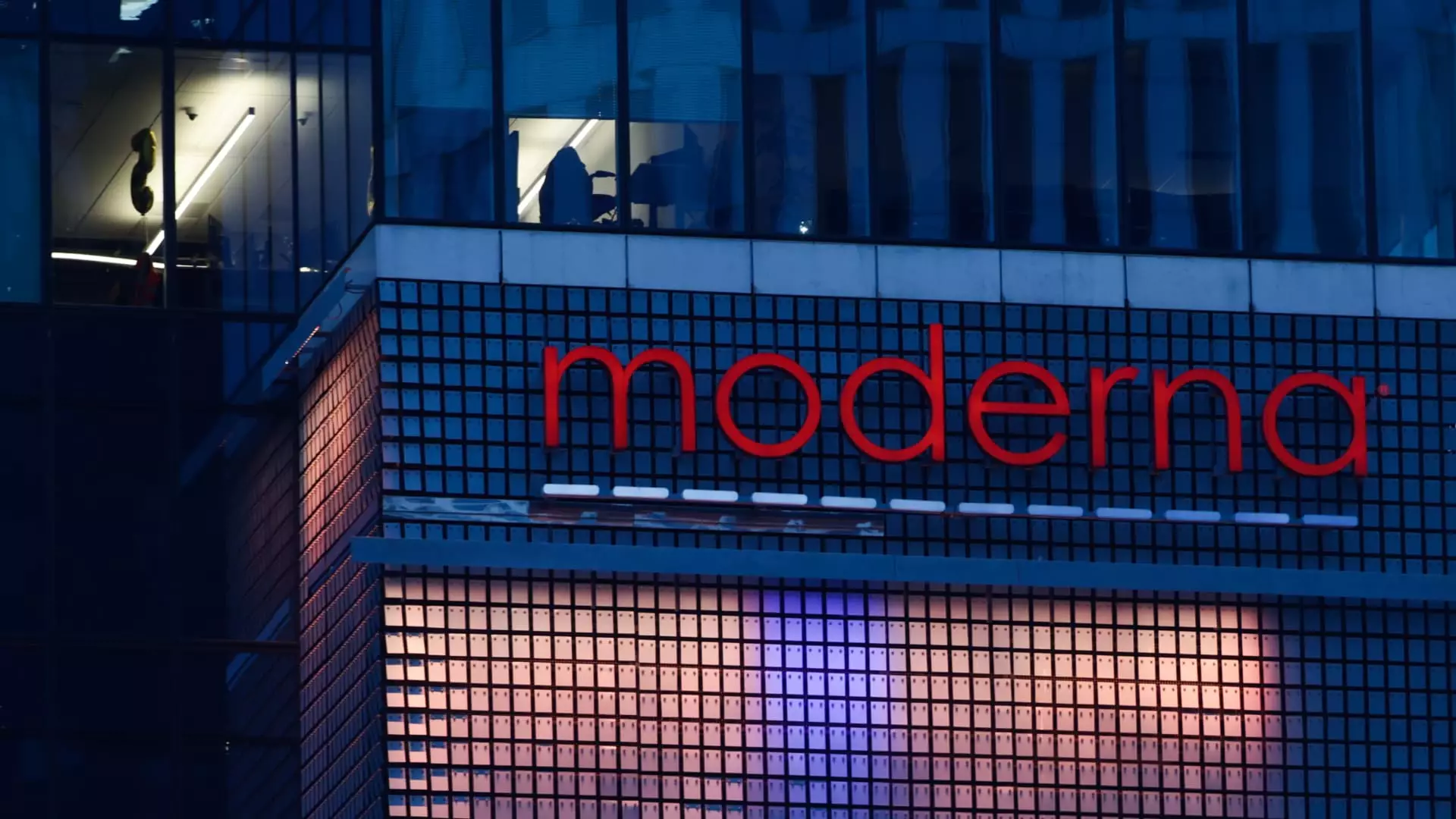The surprising 2% jump in Moderna’s shares highlights not just a routine market reaction but a deeper shift in biotech innovation. Moderna’s positive late-stage trial results for its experimental flu vaccine demonstrate the company’s aggressive expansion beyond Covid-19. This creates a significant competitive edge, signaling that Moderna is no longer a one-trick pony but a serious contender in broader vaccine markets. This pivot toward a combined flu and Covid shot shows foresight; the company is embracing complexity over single-shot simplicity, which could redefine public health approaches in the coming years. From a center-right standpoint, celebrating innovation and market-driven breakthroughs in healthcare is crucial, and Moderna exemplifies how private enterprise, backed by smart risk-taking, can accelerate progress.
Tech Giants Navigate Complex Legal and Strategic Battles
Hewlett Packard Enterprise’s 14% stock surge after settling its $14 billion acquisition of Juniper Networks with the U.S. Department of Justice reveals a critical lesson: political and legal hurdles are becoming more entwined with corporate strategies. The DOJ’s role in challenging mega-mergers reflects a growing regulatory impatience toward tech consolidation. Yet, the eventual settlement underscores a pragmatic recognition that innovation and scale often require such partnerships. These dynamics suggest that governments should regulate cautiously, striking a balance between curbing monopolies and enabling companies to build global competitive strength. Juniper’s inclusion promises to enhance Hewlett Packard’s server capabilities amid intensifying cloud competition, a market where efficiency and scale are non-negotiable.
Meta’s AI Recruitment War Signals Tech’s New Battleground
Meta’s stock boost after scooping up four AI researchers from OpenAI illustrates an escalating intellectual arms race in artificial intelligence development. This is more than a staffing story—it’s an ominous sign of where the tech world is heading. Meta’s creation of a Superintelligence group is a direct challenge to Silicon Valley’s oligopoly, attempting to claim dominance over a technology that will redefine economies and societies. However, the ethical and governance implications of such concentrated AI expertise must be scrutinized. On the one hand, this is a triumph of market-driven research and innovation. On the other, it raises questions about transparency and control in technologies that could disrupt labor markets and personal freedoms.
Corporate Consolidation and Its Discontents: The Case of GMS
The sudden 11% leap in GMS shares following Home Depot’s $4.3 billion buyout bid is another example of aggressive industry consolidation under way in retail and construction supplies. This bid, beating out previous offers, reflects a fierce competition for market dominance and supply chain control. However, consolidation is a double-edged sword: while it can drive efficiencies and customer benefits, it risks reducing competition, inflating prices, and stifling innovation. The center-right view must champion open markets but vigilantly oppose monopolistic dominance that harms consumer choice.
Public-Private Partnerships Driving AI Adoption in Government
Palantir Technologies joining forces with Accenture Federal to utilize AI in federal operations reveals a pragmatic embrace of private sector expertise to modernize government functions. The moderate stock increases for both companies indicate investor confidence in leveraging AI to drive efficiency in often slow-moving bureaucracies. This kind of collaboration should be encouraged as it enhances government service delivery without sacrificing fiscal responsibility. Still, caution is warranted to prevent undue dependence on private contractors that may limit oversight and competition.
The Entertainment Sector’s Resilience Amid Changing Dynamics
Disney’s stock rise after an upgrade by Jefferies, thanks to steady park operations and promising cruise line prospects, contrasts with many companies struggling under economic pressures. Disney’s ability to maintain profitability in experiential businesses is a reminder that quality entertainment remains a staple even when consumer confidence wavers. From a center-right perspective, this reflects the enduring appeal of capitalism’s creative sectors, which thrive through innovation and consumer appeal rather than handouts.
Veiled Threats to Clean Energy and EV Progress in Political Maneuvering
Tesla’s modest decline in value after President Trump’s spending bill advances marks a concerning intersection between political dynamics and the future of clean energy. The bill’s provisions to accelerate the phasing out of tax credits for renewables and electric vehicles cast a shadow over the industry’s growth trajectory. While it’s sensible to scrutinize government subsidies, abrupt policy shifts risk destabilizing burgeoning sectors vital for environmental and economic modernization. Center-right liberalism should advocate for measured reform that balances free-market principles with strategic support for emerging technologies essential for national competitiveness. Punitive or reckless policy changes, however, threaten to undo the progress that innovation and private investment have achieved.

